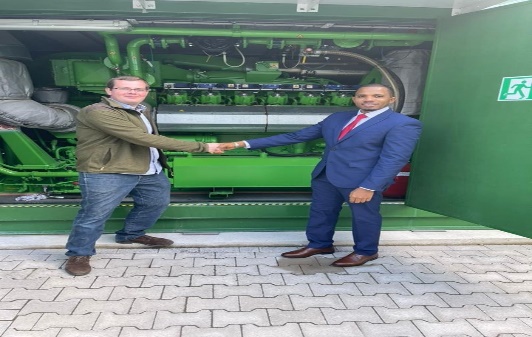By Adama Makasuba
Dr Ismaila Ceesay, leader of Citizens’ Alliance has continued his Germany tour as he visited a Bio-Gas plant amid the party’s energy vision.
“The availability of adequate, reliable, affordable, and sustainable energy is critical for Gambia’s socio-economic transformation. Today, I visited a Bio-Gas plant in Ösnarbruck. I also inspected the installations of ENERCON in Bremen, a leading manufacturer in the wind energy industry. I further had a familiarisation tour of The University of Applied Sciences in Emden-Leer,” he said.
“I visited a Wind Farm to identify opportunities for technology innovation and Digitalisation to unlock The Gambia’s energy potential,” he added.
Meanwhile, he said: “The Gambia is rich in renewable energy sources, including hydro, sun, wind, bio, and so on. Despite this substantial potential, over 65% of our population lack access to electricity. The rest have access to an erratic energy supply at a very high cost. With the rapid economic expansion and our population projected to reach 5 million in 2050, we must harness our indigenous and clean energy resources to generate 100% of our energy needs. The decisions we make today will shape the energy sector of our country for generations to come.”
He also visited an Agricultural Institute in Bremen, Germany and said: “our beautiful country ranks 174 out of 189 countries in the Human Development Index (2019). Poverty rates remain at 48 percent, while food insecurity has risen from 5 to 8 percent over the past five years as a result of weak food production. We produce only 50 percent of our food needs as we highly depend on imports.”
“To eradicate hunger and ensure food security within a generation we need to urgently boost agricultural production and its value chain through the application of technological innovation. I visited an agricultural institute in Bremen, Germany, to get us prepared for this task.
“Technological innovations in farming will help us graduate from subsistence farming to large scale commercial farming and manufacturing. This will promote food security and provide sustainable livelihoods and a prosperous future for our young people,” he added.




